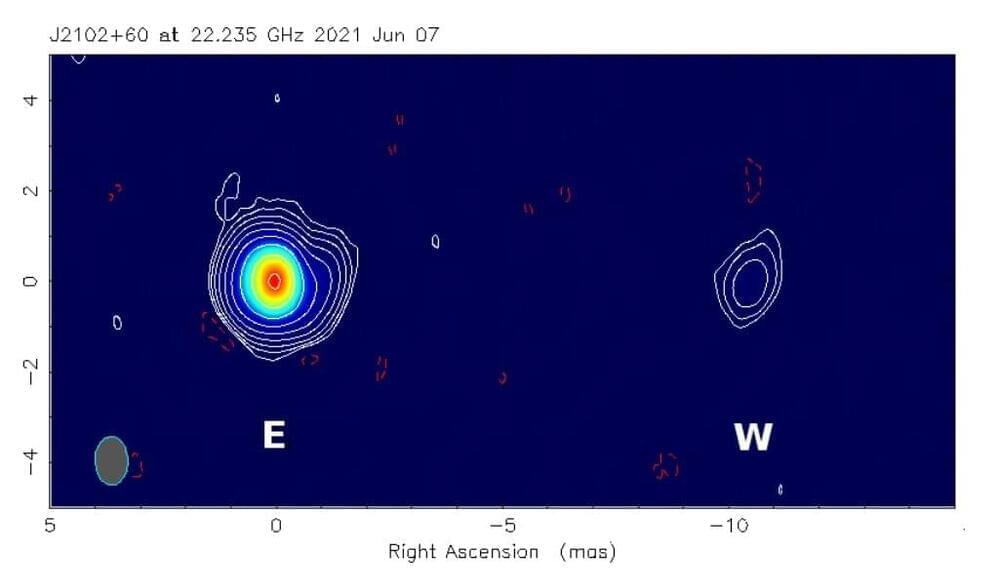Using the European VLBI Network (EVN), an international team of astronomers has performed high-resolution imaging observations of a powerful and radio-loud high-redshift quasar known as J2102+6015. Results of the observational campaign, presented January 18 on the preprint server arXiv, could help us better understand the nature of this peculiar quasar and other powerful radio sources.
Quasars, or quasi-stellar objects (QSOs), are extremely luminous active galactic nuclei (AGN) containing supermassive central black holes with accretion disks. Their redshifts are measured from the strong spectral lines that dominate their visible and ultraviolet spectra.
Astronomers are especially interested in finding new high-redshift quasars (at redshift higher than 4.5) as they are the most luminous and most distant compact objects in the observable universe. Spectra of such QSOs can be used to estimate the mass of supermassive black holes that constrain the evolution and formation models of quasars. Therefore, high-redshift quasars could serve as a powerful tool to probe the early universe.
